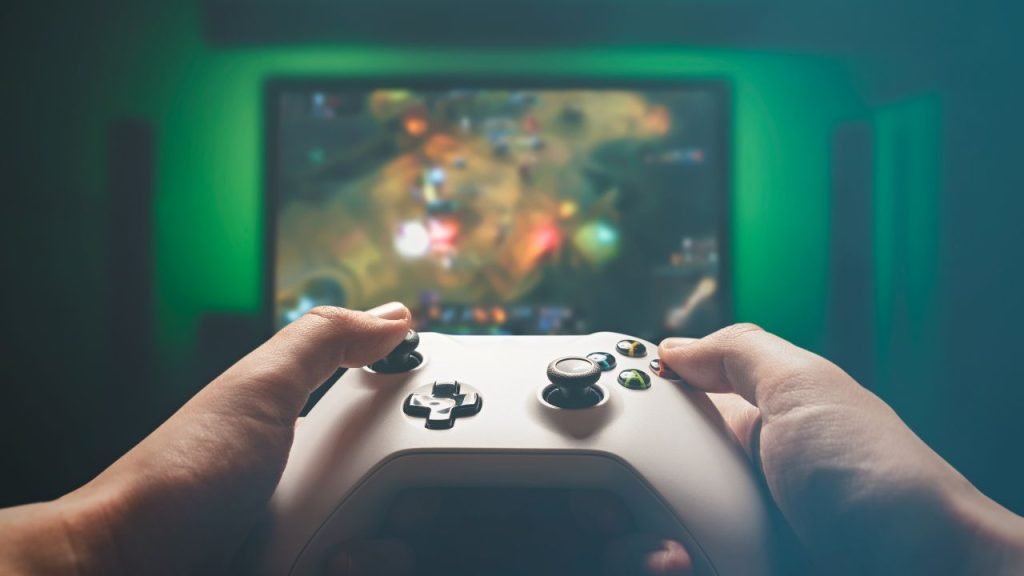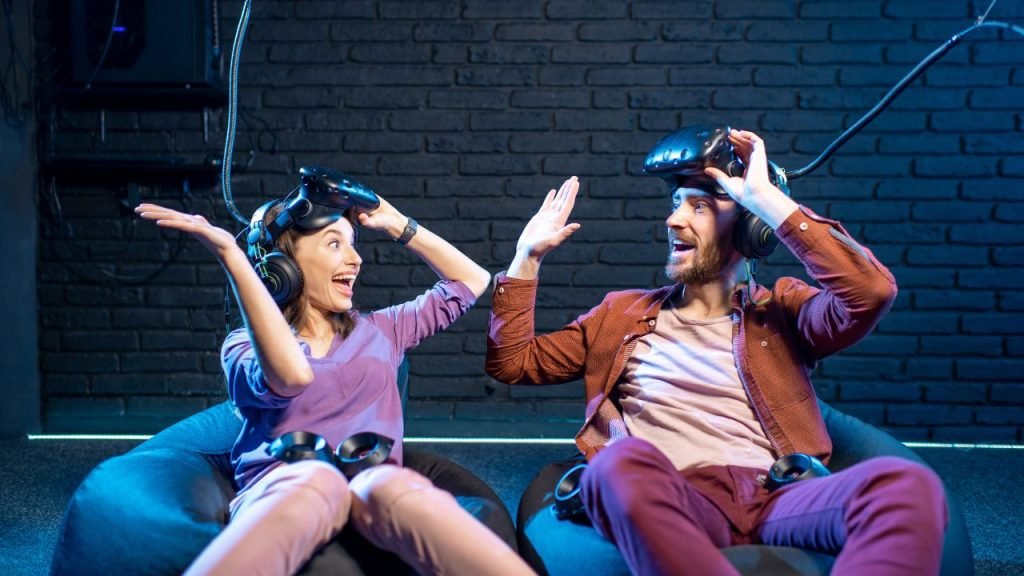Learning, Health, and Social Benefits of Video Games
Some people feel that gaming must be bad for you. They believe that gaming requires withdrawal into solitude. Therefore, they think, it must result in isolation and social awkwardness. It’s also got to be bad for your eyes and posture.
Others—typically gamers—have the impression that gaming is good. Aside from being fun, they believe it helps social connection, improves coordination and skills, and that you learn new things.
To get some facts into the debate, we’ll consider three aspects: potential learning, health, and social benefits. While there are always some overlaps between categories, they’re divided up here for organization purposes.
The science is a bit hazy when it comes to kids. Their brains are still developing until about 10 to 12, so most research on gaming involves young adults or adults.
Here’s a look at the science behind the benefits of gaming.

Learning Benefits of Gaming
Video gaming has been linked to improved brain function, especially in the following areas:
- Visual attention and short-term memory
- Working memory
- Reaction speed
- Cognition
Gaming literally affects brain structure (it affects neuroplasticity) as well as function. Rather than being something to be concerned about, this is part of the scientific evidence that noncognitive gaming can be used to improve people’s brains.
These effects were observed when gamers had been at it for more than 16 hours. And the video gaming sessions were described as “acute.” It’s worth noting that the research also took into consideration that gamers play many different kinds of games.
Game Types and Effects on the Brain
- Puzzle gaming, such as spatial prediction and problem-solving games, is beneficial for the visual-spatial parts of the brain.
- 3D gaming has been demonstrated to affect the hippocampus, the dorsolateral prefrontal cortex (DLPFC), and the cerebellum. To put this into context, the hippocampus is activated during 3D gaming to help us deal with memory and scene recognition. The DLPFC and cerebellum are used for working memory, but also image manipulation and problem-solving.
When people were playing these games, there was an increase in grey matter, which is associated with memories, perception, spatial navigation, and muscle control. Reduced activity was noted in the DLPFC, which signifies efficient divergent thinking.
- Strategy games had a positive effect on the DLPFC.
- Rhythm games stimulated the parts of the brain associated with visuospatial working memory, emotions, and attention.
- The ever-popular first-person shooter games gave a workout to the hippocampus, which was required for navigating a 3D world, and the amygdala, which helps gamers stay alert.
The conclusion from this research is that gaming can help people learn or develop new ways of thinking. It’s great mental stimulation and the kind of game directly affects how people’s brains can benefit. In general, it was noted that gamers might be better at switching between tasks. Furthermore, they may demonstrate better information-processing skills than non-gamers.
Health Benefits of Gaming

In 2020, researchers at Oxford University discovered that video games could be beneficial to mental health and happiness. They determined that gaming provides healthy brain stimulation, effectively giving a workout to different areas of the brain.
Game worlds can be immersive, typically making gaming more interactive and less passive than watching TV or movies. The puzzles in many games are challenging and require concentration, memory, spatial awareness, verbal reasoning, memory, and mental dexterity.
In addition to these benefits, video games are often a go-to activity for those in need of stress relief. Indeed, they offer many people an important release and safe space with which they can deal with stress or trauma. With a balance between gaming and other activities, it can be a coping mechanism that helps people get through a tough day.
Overcoming in-game challenges can help gamers cope with real-life obstacles. So while games can provide time out and escapism, they can also boost self-confidence and allow someone to achieve goals that are motivational and emotionally powerful.
Social Benefits of Gaming

Gaming online combats loneliness. During COVID-19, gamers generally experienced less depression or feelings of isolation than non-gamers, because they had pre-existing gaming communities.
Online communities are real. The fact that people in those communities may be in different countries with different ages, and cultures are positives that can help gamers broaden their outlooks on the world.
Moreover, rather than being isolating, many gaming experiences are cooperative and include a social aspect, such as group play opportunities, messaging areas, or dedicated gaming communication apps, like Discord.
With streaming and better connectivity, gamers connect with people around the world to make worlds, achieve goals, or just share time together.
It’s also interesting to note that people can express themselves differently online. It could be said that they can be more themselves or express parts of themselves that they are afraid to off-screen. This too can boost healthy self-expression.
While the anonymity of “meeting” people online may be a concern, gamers need to educate themselves about the risks of sharing personally identifiable information online. Furthermore, they can use Leadar or any other people search platform to verify the details and to some extent the authenticity of people they communicate with online.
Finally, no one says that gamers must play with people they don’t know. Friends, families, and colleagues often get together to play online. And they can continue to do so, knowing that the science is on their side.
Conclusion
Excessive gaming can be harmful. But so can anything done excessively. Replace the word “gaming” in the previous line with literally anything and it will be true.
It’s important to remember that gaming can have negative effects on some people. It’s necessary to recognize the context of the gamer and the gaming activity. For some, gaming may take the form of avoidance activity. Or, for example, a gamer may be suffering from mental distress.
However, gaming can be interactive, social, and challenging. Everyone’s situation is different, but it has the potential to be beneficial for brains, mental health, and social connections. It’s crucial to have a balance as it can be tempting to keep playing an exciting game and neglect other important activities. People need a balance between getting out and exercising and staying in and exercising their minds.
It’s worthwhile seriously thinking about the kinds of games we play, how long we play them, when we play, and why. When we’ve answered those questions honestly, gaming could be incorporated as a healthy, regular activity that increases our happiness and improves our minds and social connections.
